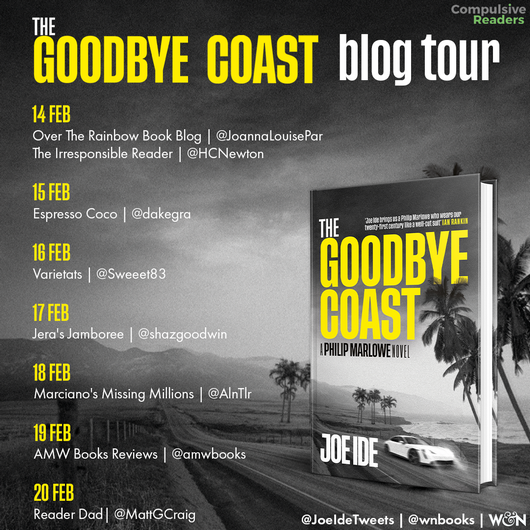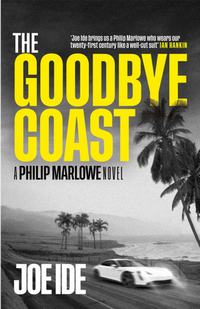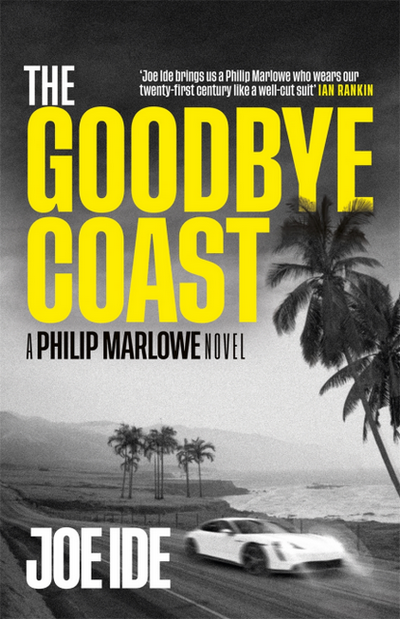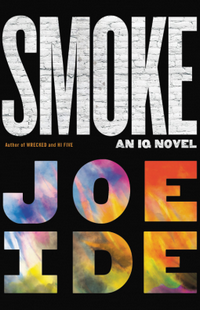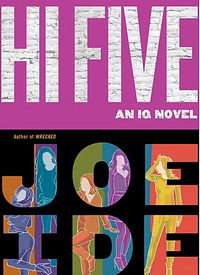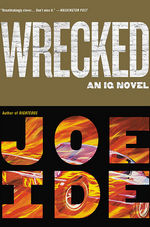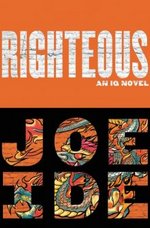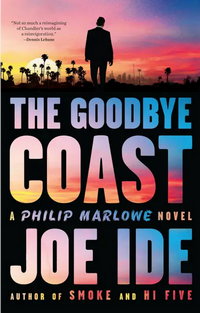 The Goodbye Coast
The Goodbye Coast
by Joe Ide
DETAILS: Publisher: Mulholland Books Publication Date: February 1, 2022 Format: Hardcover Length: 301 pg. Read Date: February 12-15, 2022

“Reassembling the past, reconstructing relationships, trying to link someone’s words with the facts at hand or facts yet to be discovered. You overlay a hundred different constructs over the exact same information and you’ll come up with a hundred different theories. Everyone sees, interprets and understands things differently. Everyone has their own aspirations, anxieties and fears. It’s what they call human nature.” Basilio paused to search his molars with his tongue. “Don’t get me wrong, kid. I’m not saying it’ll all be mundane. There are things inside people so vicious and depraved you’d think their breath would smell like roadkill. They’re out there, Marlowe. Every vile infection, mutant species, every simmering brew of psychopathic evil are waiting for you right outside the door.” Basilio unwrapped a toothpick and continued the search. “Sure you’re still game?”
That was ten years ago and yes, Marlowe was still game.
This is a follow-up to my post last week, where I blogged about what I thought of the first third of the book for a Book Tour. I will be re-using some of what I said then, for the record.
My Faulty Assumption
When I heard that Joe Ide was going to do a Philip Marlowe novel, I assumed it was going to be in the same vein as his South Central Sherlock Holmes novel, IQ-this time with a Marlowe-esque figure in a contemporary L.A.
Nope. This time out, Ide isn’t messing around with something inspired by one of the greats. He’s it’s a full bore re-imagining. We’ve got Philip Marlowe in his tenth year of being a P.I. in a 2020-is L.A. The question is, will this work?
What’s The Goodbye Coast About?
An aging star of Rom-Coms hires Marlowe to find her stepdaughter, a 16-year-old runaway, Cody. Cody’s father, Terry, was a director who had one mega-success and a series of flops. He appears to have fallen in with a group of Russian and Albanian gangsters as a way to secure funding for one last attempt at saving his career. Sadly, he was murdered in front of their home. That was six weeks ago. A month later, Cody runs away, stealing the housekeeper’s car to do so.
It’s been two weeks, and no sign of her has been found. Kendra James hires Marlowe, not to look into the murder, but to track down Cody. Something doesn’t sit right about this with Marlowe, but James is paying a ridiculous amount of money, so he takes the case. Marlowe definitely doesn’t like James, the way she treats her staff, or spends her money. But that doesn’t mean he can’t some of that money.
Naturally, Marlowe ends up looking into the murder, and the questions surrounding it, the victim, and Marlowe’s client start to add up.
While in the middle of this investigation, Marlowe is approached by a British woman looking for her son—her ex-husband has abducted the boy and flown home to L.A. as the lastest step in their bitter divorce. She’s spent pretty much everything she has to get to L.A., and after a series of rejections from Private Investigators who expect to be paid for their efforts, she’s been referred to Marlowe.
Emmett Marlowe
Marlowe’s father, Emmett, is a 17-year-veteran of the LAPD. Currently on leave, following the death of his wife from cancer and the drinking (both excessive and habitual) he turned to after that.
The relationship between father and son is strained, and the closest they get is when they work together—Emmett is essentially Marlowe’s partner in some of his cases, unofficially using LAPD resources in the service of the case.
The emotional core of this novel is the relationship between Emmett and Marlowe. There are a lot of ups and downs just in these three hundred pages, and it’s clear that this is nothing new—all of this has happened before, and it will all happen again. I’m not sure what they have could be love—it really doesn’t seem to be affection—but they’re family.
Phillip Marlowe, Really?
I’m really not sure about this part. How Phillip Marlowe-y is this guy? Do we need Marlowe in the 21st Century? I wondered about that as soon as I finally understood what Ide was doing in this book a few weeks ago, and I still have questions about that.
One thing that I stumbled over is Ide’s use of the third person. Chandler’s Marlowe is notably a first-person narrator—and his narration served as the template for so many P.I.s that followed. Ide is about to work in some touches that make me think of Chandler’s narration but it’s not the same and takes some getting used to.
There are plenty of similarities between the two author’s take on the character, a similar attitude, aptitude, mannerisms, and likes. On the other hand, Ide’s Marlowe’s backstory and the involvement of his father are significant divergences. That’s his prerogative, and there’s nothing inherently wrong with that—but at a certain point, if enough tweaks are made, is it Phillip Marlowe?
I cannot stress enough—I would have absolutely no qualms about this character if he had any other name under the sun. But tagging him with Philip Marlowe means something, right? I’m not prepared to say that Ide gave us a version of Chandler’s character for the Twenty-First Century. For me, I think I have to think of Ide’s Marlowe as some guy who by some crazy, random happenstance shares his name with a P.I. from the same city in the 30s and 40s.
So, what did I think about The Goodbye Coast?
A PI didn’t have to produce evidence that held up in court. A PI speculated, deduced and conjectured until a theory formed that felt right to an experienced investigator. Marlowe could never replicate [redacted]’s thinking or [their] individual moves. The best he could do was ask himself, How would you do it, Marlowe?
It took me no time at all to get hooked by this—and hooked solidly. If it weren’t for prior obligations (like, say, work), I’d have eagerly stayed up all night reading.
Everything about the Cody/Terry/Kendra case is murky—the more time that Marlowe and his father spend on it, the worse it gets. Every time they or the reader think they’ve gotten to the bottom of what happened, and to the depth of the depravity involved, within a few pages they’re proven wrong. By the end, you see that Ide has fully embraced the noir ethos of Chandler’s detective and runs with it.
I’m not sure I liked much about the father taking the child story, the resolution was satisfying enough, though. But what I appreciated about it was the way it brought the child’s mother, Ren, into the novel. She played a significant role in the Cody story in several ways. Also, the best bit of dialogue in the novel comes from the first conversation that Mom and Marlowe had. I’m a sucker for banter, and Ide nailed this one. If there is a sequel to this, I’d love for Ide to come up with some excuse to bring Ren into it.
Speaking of the dialogue, as a whole it’s crisp, snappy, and witty. The characters leap off the page, and it didn’t take me long to get invested in the whole thing. This version of L.A. shares a lot with Chandlers, too—the collision of an abundance of wealth and a dearth of ethics/morality helps to create a dynamite setting for a P.I. novel. Between the narrative voice, dialogue, and frequent Chandler-esque similies, this is the most entertaining writing from Ide yet–I’m talking the technical bits, not the character or plot (nothing against them, I’m trying to distinguish things here).
I got the impression this is intended as a stand-alone, but I could be wrong. If there’s a sequel, I’m there in a heartbeat. I can see this Marlowe rivaling Isaiah Quintabe in my eyes. P.I. fans—go get your hands on this.

This post contains an affiliate link. If you purchase from it, I will get a small commission at no additional cost to you. As always, opinions are my own.
![]()



